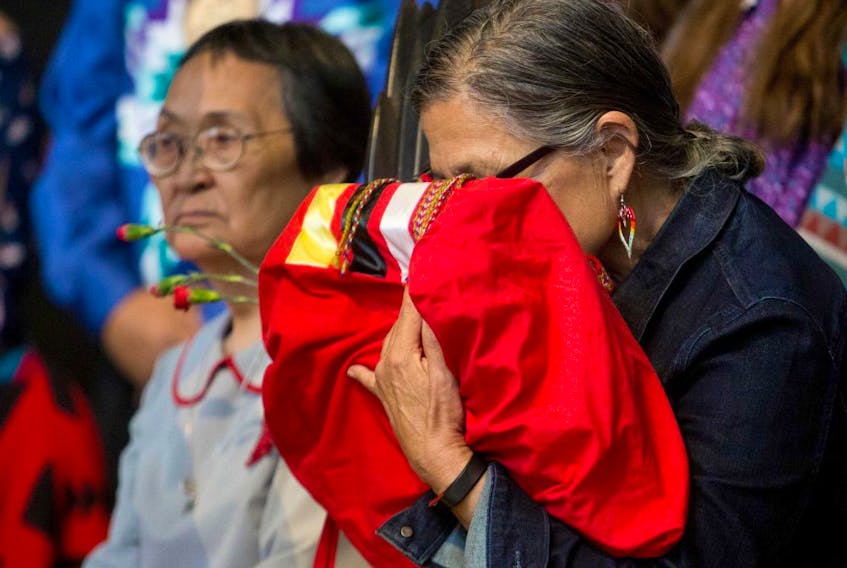Lisa Cooper
Guest Opinion
With the recent release of the devastating final report from the National Inquiry into Murdered and Missing Indigenous Women and Girls (MMIWG), the world is now focusing on the way Canada will react to being identified as the perpetrator of a “genocide.” While people can debate the use of that word, what cannot be debated is that for far too long – centuries – the policies of governments across Canada have led to a situation where hundreds of Indigenous women and girls go missing or unaccounted for each year. The report cannot even accurately state how many of our women and girls are dead or gone – thousands, the report says. Thousands, at the least.
Our lost women and girls came from communities across this country; many from First Nation reserves and many from off-reserve and urban areas. Many may have not even known they were Indigenous or to what Nation they belonged. At the Native Council of P.E.I., where I am president and chief, we advocate for the rights, needs and interests of off-reserve, status and non-status Indigenous peoples of all Indigenous nations. Our membership includes status and non-status Mi’kmaq, Métis, Mohawk, Ojibway, Inuit and citizens of other Indigenous Nations. What they all have in common is that they live on P.E.I.; they do not live on a reserve and are, consequently, underserved by governments across the board; they have all been impacted by the genocide; and they are all “Indians” according to the Supreme Court’s decision in Daniels.
It is this underserved demographic of off-reserve Indigenous peoples that the Daniels decision called “the most disadvantaged of all Canadian citizens” who dwell in a “jurisdictional wasteland.” For example, NCPEI’s membership has no consistent governmental support beyond our minimum core funding. To be clear, this is not a plea to lessen the investment in the on-reserve community – our cousins on reserve require more support as well.
it is, at this inflection point in the relationship between Canada and all Indigenous peoples, a time for a stable commitment to supports and programming for the off-reserve population too. NCPEI is the oldest Indigenous representative organization on P.E.I. Since 1975, we have been advocating for the rights, needs and interests of our members; and delivering culturally appropriate support and programming to Indigenous peoples of all nations.
To its great credit, the MMIWG report speaks to these gaps in profound and direct ways. Call for Justice 1.6 states, “we call upon all governments to eliminate jurisdictional gaps and neglect that result in the denial of services, or improperly regulated and delivered services, that address the social, economic, political, and cultural marginalization of, and violence against, Indigenous women, girls, and 2SLGBTQQIA people.”
It is hard to make it clearer than that. But the report goes on to say, “we call upon the federal government to uphold its constitutional responsibility to Métis people and to non-Status people in the provision of all programs and services that fall under its responsibility.” We hope that the new provincial government under Premier Dennis King recognizes that this “responsibility” does not stop at the water’s edge of jurisdiction. Indeed, Premier King is responsible for upholding the rights and dignity of all P.E.I.’s citizens.
It has been far too long that Indigenous peoples have been left to wander and wonder why their place in Canada seems so far afield from other Canadians. We can only hope that the release of the MMIWG report moves us closer to what Prime Minister Justin Trudeau has repeatedly promised: true reconciliation. All our women and girls deserve justice, respect, and recognition. Canada can do better. P.E.I. can do better too. Our women and girls are watching.
Lisa Cooper is president and chief of the Native Council of P.E.I.









